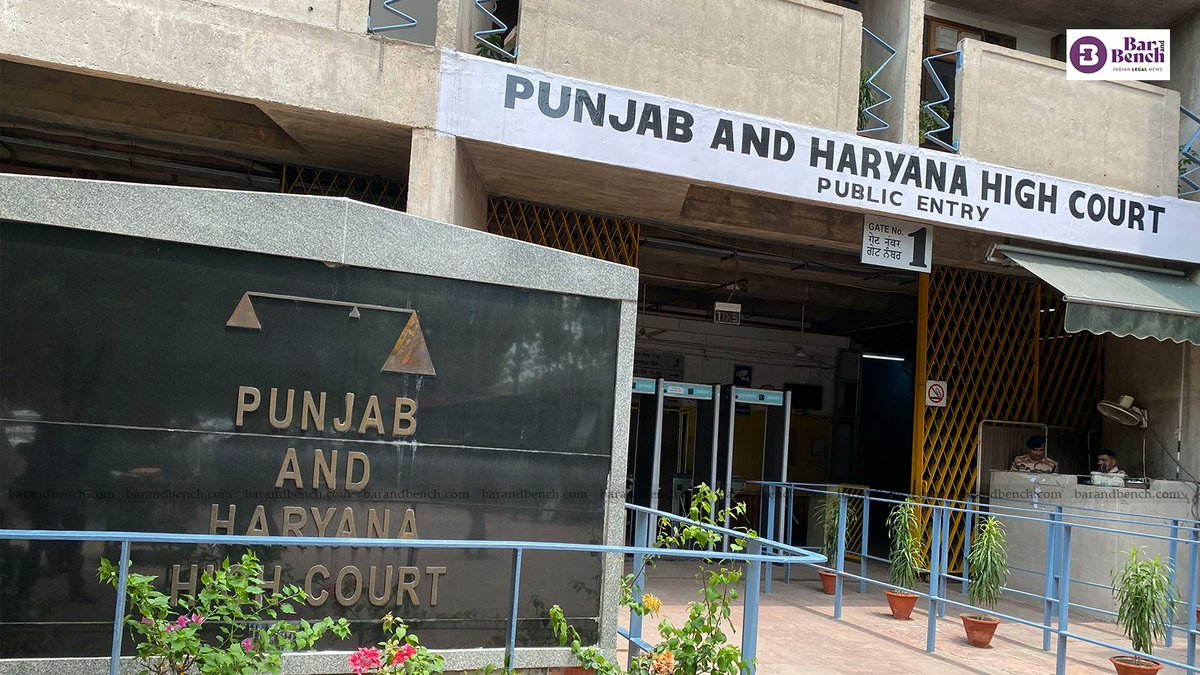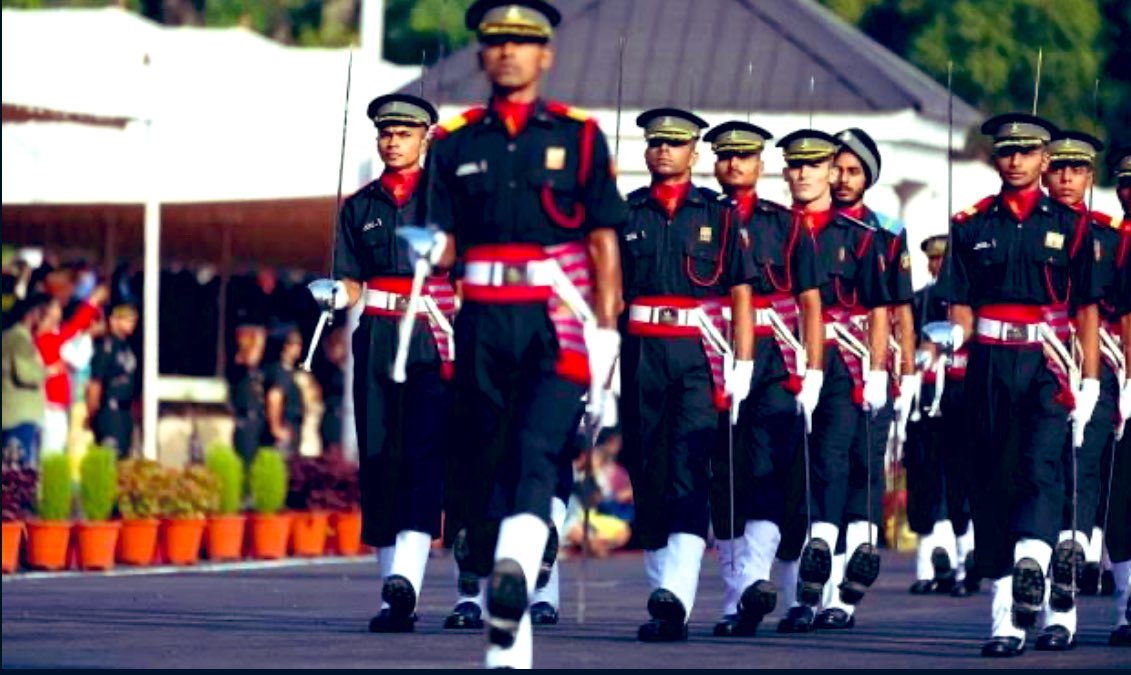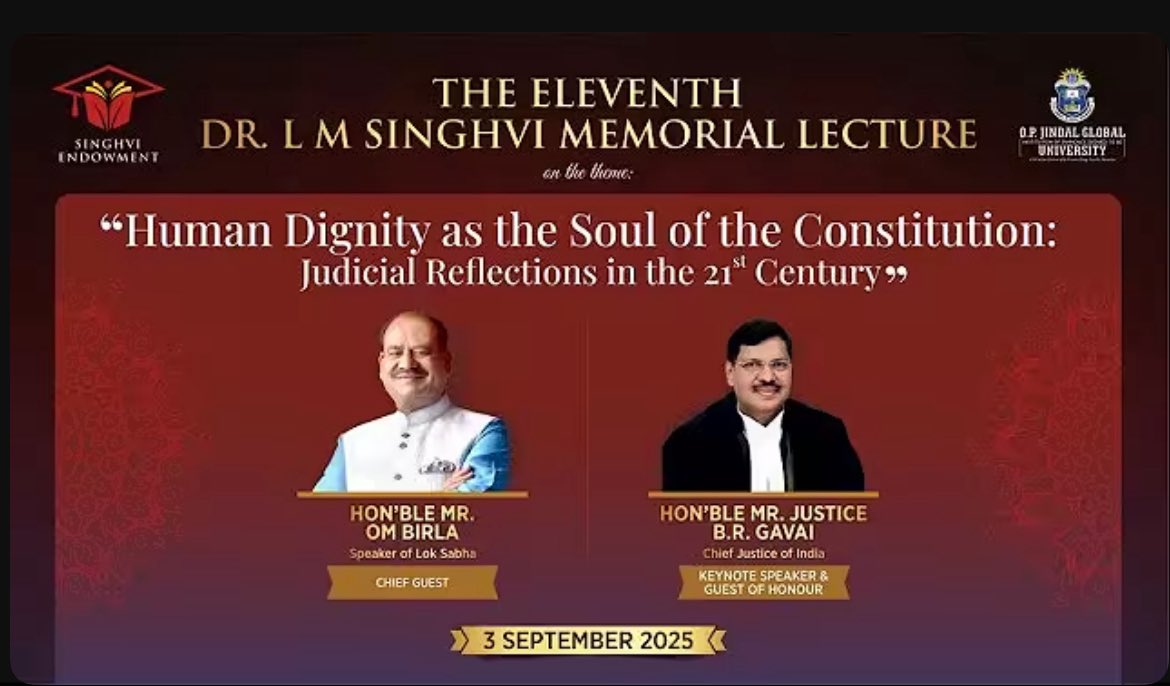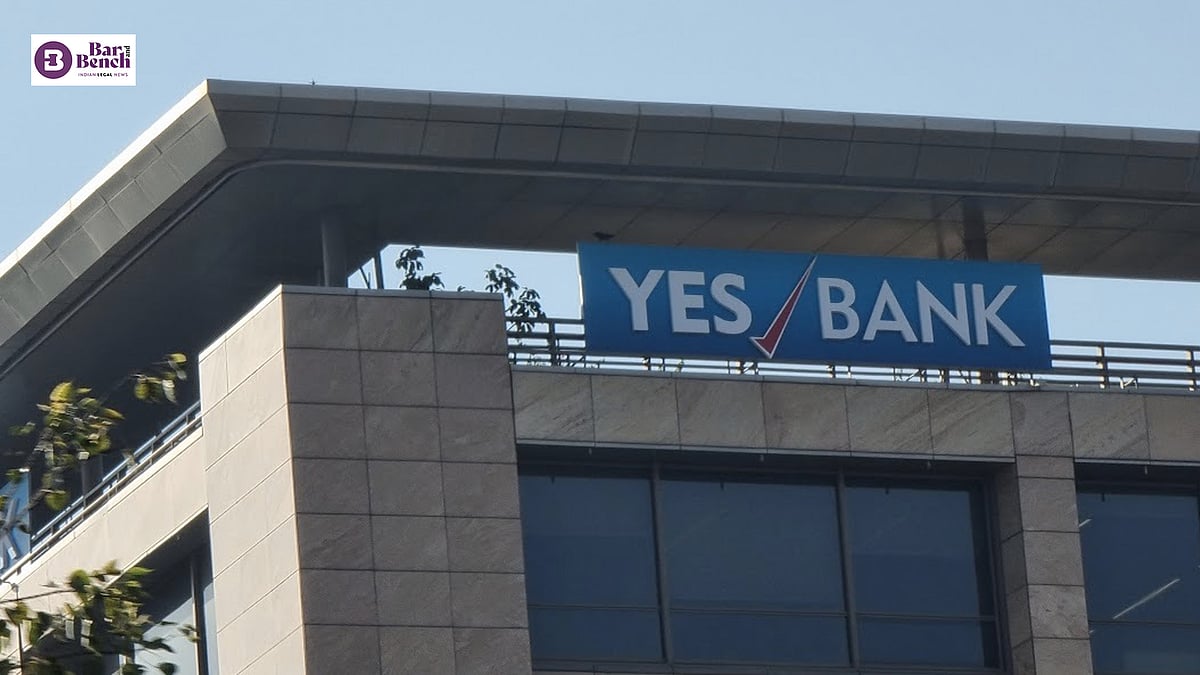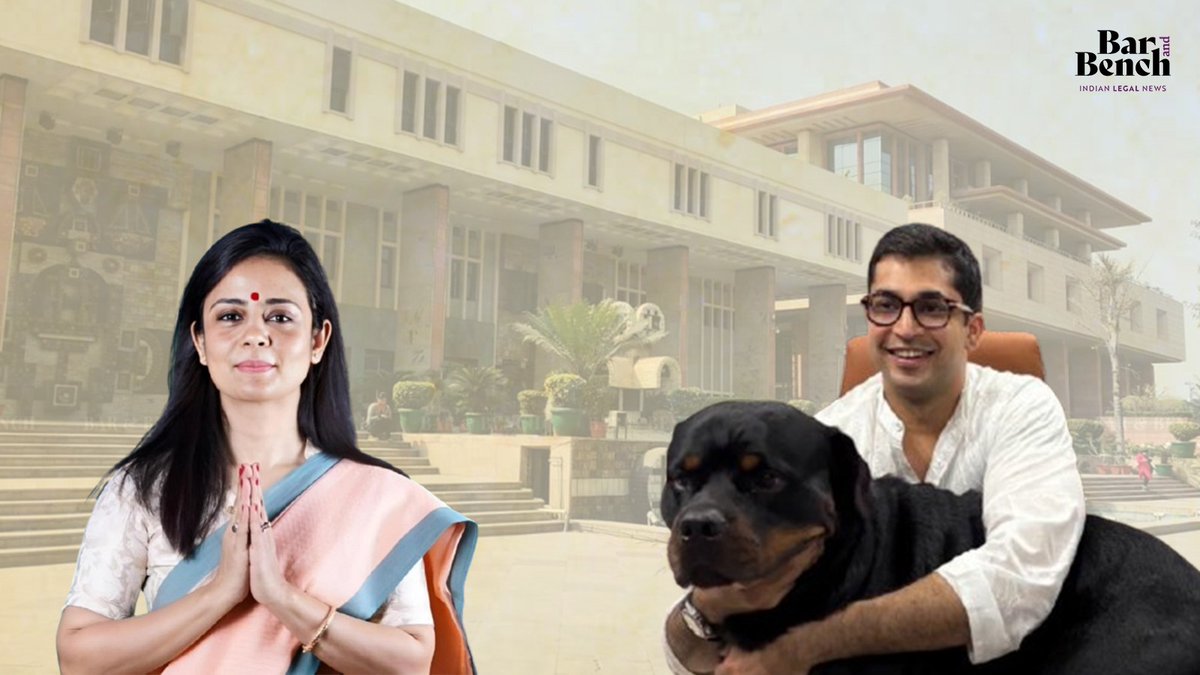Supreme Court Justice BV Nagarathna to shortly speak at the convocation ceremony of National Law University, Delhi.
#SupremeCourt #NLUD
#SupremeCourt #NLUD
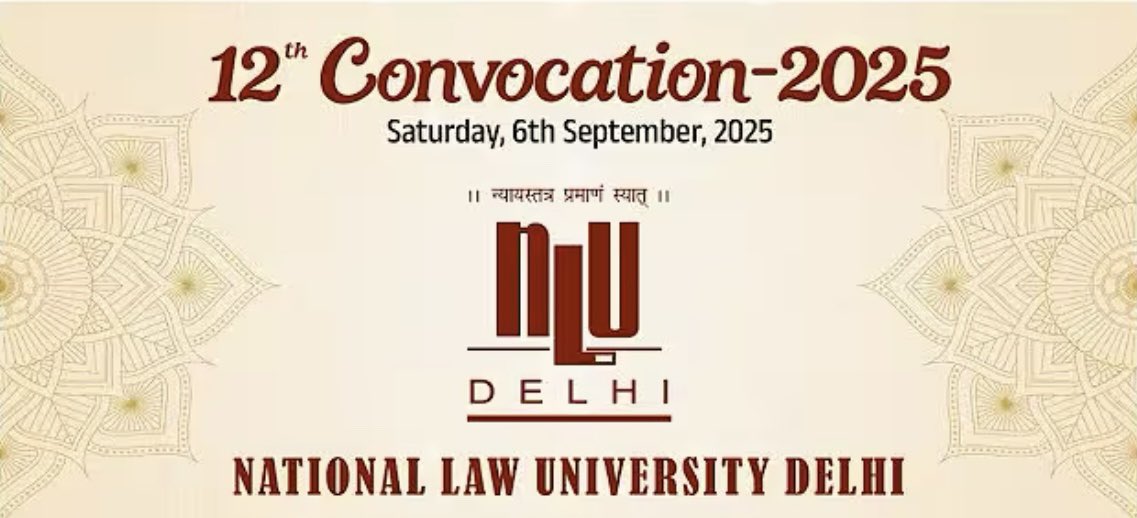
Justice Nagarathna: dear graduates, today is not merely the conclusion of your academic journey but the beginning of your voyage into justice, law, and public service.
Justice Nagarathna: today you stand at the threshold of a profession that is intellectually demanding, emotionally testing but above all profoundly of consequence not only of your lives but society at large.
Justice Nagarathna: behind every graduate today stands a constellation of sacrifice, encouragement and unwavering support. When Sr. S Radhakrishnan inaugurated the university of Jodhpur in August 1962 he said: “I hope that the young students educated at this university will not go forward as prisoners of the past but as pilgrims of the future”. Contained within those words is great wisdom of the role of universities such as NLUD and for students who strived to make their way here.
Justice Nagarathna: as you receive your degree you are not merely being conferred a personal achievement, you are taking on a collective responsibility. You must know that your affiliation is no longer only to your institutional values but to constitutional values. As companions in the legal profession your fraternity is towards constitutional values and your responsibility is to uphold them. It is in this vein that I have chosen the theme of my convocation address as “Officers of the Court and stewards of the Constitution”.
Justice Nagarathna: the last speech delivered by Dr. Ambedkar in the constituent assembly on Nov 25, 1949 is a reservoir of societal wisdom and legal farsightedness. He famously remarked “Howver good a constitution may be, it is sure to turn out a bad one because those who are called to work it happen to be a bad lot. However bad a constitution may be it may turn out to be a good one is those who are called to work it happen to be a good lot.”
Justice Nagarathna: the responsibility to work the constitution in all its magnanimity and good intentions does not lie only with the people of the power corridors but it extends to every lawyer who should be an advocate of the constitution. You as a lawyer are a steward of the constitution for life.
Justice Nagarathna: in these days of fast growing commerce and increasingly lucrative opportunities it is easy to forget that a life in law is first one rendered in public service. Legal training equips you with a special kind of power. The power to interpret, to argue, to persuade and to decide. But with this power comes a trust. A trust that you will use your skill not in pursuit of a private game but in service of public good.
Justice Nagarathna: you may be drawn to different domains, there will be times when the easier choice might seem expedient, where convenience might tempt you to look away from the harder questions. In these moments I urge you to pause, reflect on your duties as professionals and citizens within the Constitution and ask: what does justice require of me here, what is the fair and principled course, is my conduct aligned with constitutional values
Justice Nagarathna: too often the law is seen as a fortress accessible to the rich and powerful but in your hands it must become a bridge. A bridge beteeen rights and remedies, constitution and citizen, between justice and people. Remember the law belongs to everyone but everyone cannot afford to access it. You can be the difference that ensures that this access is not denied.
Justice Nagarathna: you can be the difference that ensures that this access is not denied. As stewards of the constitution progress of India along right lines could be ensured only if lawyers facilitate conditions of commerce, enable trust building in the community, play their rightful part in building a civic structure with imbibed constitutional values.
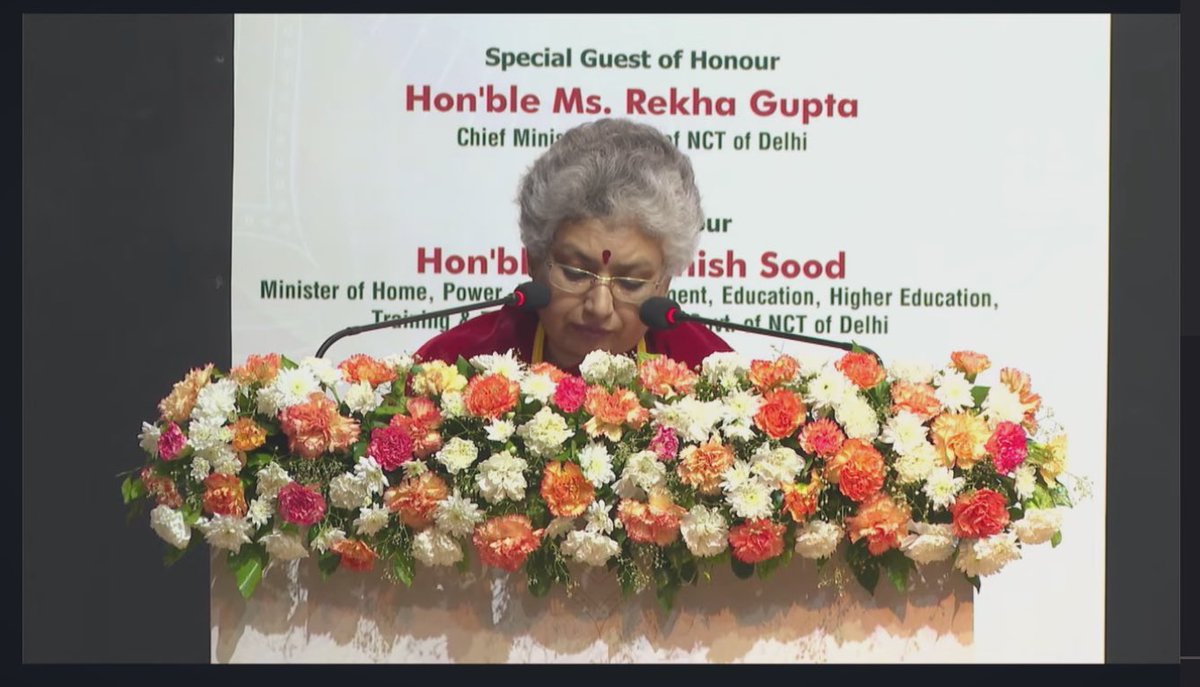
Justice Nagarathna: the velocity of change around us is unprecedented. Technological advancements, environmental crises, social upheavals, geopolitical shifts, and transformations in the way we live, work, and think. These are not theoretical conundrums, they go the heart of what kind of society we live in and what kind of role the law plays in shaping it.
Justice Nagarathna: In an age when the old categories are breaking down we need thinkers who can build bridges between the past and future, between tradition and innovation, between legality and legitimacy.
Justice Nagarathna: let me tell you one honest opinion, no curriculum howsoever exhaustive, no textbook howsoever comprehensive, no internship however prestigious can fully prepare you for the complexity of real world dilemmas. The real test begins now, in moments where the law may be silent, ambiguous or contested. It is in those moments that your ethical compass will matter most. Will you choose the expedient path or the just one. Will you act from conviction or convenience.
Justice Nagarathna: as the chairman of the drafting committee Dr. Ambedkar started his speech by offering accountability, more pertinently accountability with humility. I want you to understand and acknowledge that offering accountability is no favor but a duty. This duty is also defined in BCI rules on an advocate’s duty towards the client. I must also take you to Dr. Ambedkar’s anxiety. I think his anxiety spoke to posterity. You will face many moments of anxiety on the other hand, will you try to benefit from procedure even at the cost of justice?
Justice Nagarathna: dear students, what should you do in these moments? Law is not just about rules; it is about purpose. It is about creating conditions in which human dignity can flourish. It is also ensuring that every person regardless of wealth, status, caste, gender, or belief is treated as an equal subject before the law.
Justice Nagarathna: in society like ours, where historical exclusions and entrenched inequalities persist, the legal profession is not just a vocation, it is a vehicle for transformation. The constitution of India embodies a profound transformation. Broadly there are two legacies of injustice that the constitution sought to transform.
Justice Nagarathna: first the constitution transformed the legal relationship between the individual and State. It transformed the subjects of a colonial regime into citizens of a republic. Apart from the guarantee of universal adult franchise and structures of parliamentary democracy, this transformation is expressed through the fundamental right.
Justice Nagarathna: the Indian constitution was transformative in a second sense. It contemplated a thorough reconstruction of not only the State, but society too. The constitution entrusts you not with a mere defence of rules but with a defence of purpose. One rooted in equality, liberty, and justice. If you hold fast to this, you will not just be lawyers, but you will be custodians of India’s unfinished and ongoing project of transformation.
Justice Nagarathna: I need not go into the equality code enshrined in the constitution. The second is the code of fraternity and the third is the liberty code. These themes explore the transformative goal of the constitution which views the State as an enabler of individual freedoms and as vehicles of social transformation.
Justice Nagarathna: the Supreme Court and the constitutional courts have elaborated on each of these themes by expanding the scope of their definition and intention and therefore it is the duty of each one of you to ensure that you do not go against these themes and make your statements in consonance with these themes.
Justice Nagarathna: there are several features of our constitution that provide for the fundamental duties, fundamental structure to ensure good governance of our country. First the preamble, second fundamental rights and rule of law, third directive principles of state policy, fourth, separation of powers and fifth, federal structure.
Justice Nagarathna: fundamental rights are intertwined with the rule of law. With a democracy such as in India, where rule of law is its essence, it has to be preserved and enforced by the Courts of law. If the rule of law has to be preserved as the essence of democracy, it is the duty of the Courts to enforce the same without fear or favour, affection or ill will. It then becomes the duty of each one you graduates to assist the Courts to ensure that rule of law is continued, preserved and permeated.
Justice Nagarathna: separation of powers ensures checks and balances preventing concentration of power in any single organ and promoting accountability. The role of the lawyer is significant in this context. The power of judicial review which is a potent instrument for ensuring laws and executive actions conform to the principles of the Constitution, do not infringe upon the constitution.
Justice Nagarathna: connected with separation of powers is the independence of the Judiciary. Rule of law being the most significant characteristic of good governance prevails because India has an independent judiciary which was been sustained amongst others because of support and assistance from an independent bar.
Justice Nagarathna: the genius of our constitution makers was that they understood the rhythm of change- law is both an anchor and a sail. A discipline conserving the present where often it doesn’t move for progress. Courage is a part of the public trust which is required for progress and you have inherited that today.
Justice Nagarathna: Continuation of our pledge to public trust and constitutional values requires every generation of young lawyers to take to every corner of the nation the vitality, utility, and belief in constitutional methods and values. Succeeding generations not only have the pivotal obligation to sustain the structure, but also the onerous duty to progressively pass it to the next generation while retaining its central character.
Justice Nagarathna: This I would call constitutional intergenerational equity. And that responsibility now passes to you, dear graduates, who are the torchbearers of this constitutional promise. What then are your duties to the community as stewards of the Constitution? Within the profession, this duty firstly necessitates a humanistic and sensitive demeanor and outlook. You should remember that a case file is not a mere chronological index of events, but speaks of human struggles and sufferings. Beyond the letters of legal text, legal practice exists in shades of grey that obligate you to choose the right path in a lis. It is incumbent upon you to recognize that your pragmatic actions as lawyers must be principled, limited by legality, and emboldened by morality.
Justice Nagarathna: Secondly, your contributions to the society must go beyond legal practice. You must creatively employ the power of interpretation, honed in you by your alma mater, and advance the cause of justice. It is tempting to think of law and justice as concepts that reside within courtrooms, in the form of arguments made by lawyers, orders passed by judges, or judgments published in law reports. But the truth is that justice neither begins nor ends within the four walls of a courtroom. It is lived or denied in the everyday experiences of people, far beyond the reach of legal formalities.
Justice Nagarathna: This is because the reach of the law extends to everyday realities. That is where you come in. As lawyers, your responsibility goes far beyond litigation. You are not merely service providers in a professional sense. You are, or must become, translators of the Constitution into the language of the people's lives.
Justice Nagarathna: As lawyers, you must make justice real, not just by citing rights in petitions, but by helping people understand what those rights mean, by offering your time to legal aid clinics, by conducting awareness programs, by holding state institutions accountable, by mentoring young students from disadvantaged backgrounds, by participating in public discourse with clarity and civility.
Justice Nagarathna: Dear graduates, Today, standing before you, I am reminded of the words of Sir Edward Coke, the 16th century eminent English jurist. He remarked, “There is no jewel in the world comparable to learning, no learning so excellent both for prints and subject as knowledge of law.”
Justice Nagarathna: Today you join the ranks of those entrusted with this precious jewel of legal knowledge. In moments of doubt or despair, remember why you chose this path, not merely for prestige or stability, but for justice, for service, for change. More than a career, your path is a calling, one that brings with it profound responsibilities and power to shape the very fabric of our society.
Justice Nagarathna: You are now the guardians of rule of law, the pullers of justice, and the proponents of truth. Your relationship with the court is paramount in upholding the integrity of the judicial system. You must never engage in practices that could undermine the court's authority or the public's faith in the legal system. In your career, you will inevitably face ethical dilemmas that test your conscience.
Justice Nagarathna: You may find yourself torn between your duty to your client and your commitment to truth and justice. You may be torn between temptation and your duty to your client and to the court.
Justice Nagarathna: You may encounter clients who make unethical requests, or find yourselves tempted to use purely legal technicalities to circumvent justice. In those situations, have the courage to recollect Dr. Ambedkar's anxiety, and stand firm in your ethical convictions. Let me now turn to a personal and enduring lesson I can offer to you from my years at the bar and on the bench, and in life, that the foundation of a moving full legal career is not brilliance or oratory, not eloquence, not even technical expertise. It is integrity and to enhance the faith in the system. Integrity is built not in a day, but over years, in every choice you make, in every argument you decline to twist, in every opportunity you forego because it compromises your principles.
Justice Nagarathna: It is the unshakable core that will carry you through public scrutiny, professional competition, and moments of moral conflict. True authority stems not from the display of knowledge or eloquence, but from the willingness to learn. Not from dominance, but from empathy.
Justice Nagarathna: Not from titles, but from trust. As members of the privileged profession, you have special obligations towards the nation and the community. Law is primarily a profession with grounding in governance and public service. I strongly believe a vision of legal career, completely detached from this reality, is detached from our constitutional values.
Justice Nagarathna: Remember, the measure of your success should not be merely financial, but also the positive impact you make on society. The 42nd Constitutional Amendment and Article 39 A of our Constitution mandate the provision of free legal aid to ensure that opportunities for securing justice are not denied to any citizen by reason of economic or other disability. Can this provision be ever realized if our Bar is not committed to this goal?
Justice Nagarathna: Further, as lawyers, you are the custodians of the rule of law. Your actions and decisions will contribute to the strength and integrity of our system and to rule of law, which is the bedrock of our democracy. The rule of law is not self-executing. It is a construct that depends on the health of the institutions that sustain it and the collective will of a people who believe in it.
Justice Nagarathna: The Constitution must not be confined to mere ceremonial observance. It must be spoken of in homes and classrooms, cited in judgments and policy papers, and defended in public life. It must animate our debates, inspire our reforms, and shape our sense of justice. And it is lawyers, judges, and law teachers who must lead that conclusion.
Justice Nagarathna: Dear graduates, National Law University Delhi has provided you with intellectual foundation and ethical grounding to stand tall in any arena. It has trained you not merely to know the law, but to interact with it. Not merely to follow precedent, but to reflect on purpose. Not merely to win arguments, but to pursue justice.
Justice Nagarathna: As you advocate for your clients, also advocate for our institutions and for our Constitution. Raise your voice for public education, judicial reform, legal transparency, and systemic equity. Build institutions, not just careers. Serve not only individual interests, but collective aspirations. Dear graduates, may you wield the law not as a weapon of exclusion, but as a bridge of inclusion. May you defend the Constitution, not only as a legal document, but as the living conscience of our republic. May you seek not only success, but significance. And may you always remember where you came from and what you are called to serve.
Justice Nagarathna: On this momentous occasion, I extend my warm congratulations once again to each one of you. And may you go forth to illuminate the path of justice with knowledge, integrity, and ethics to always guide you. Wishing all of you the very best. 
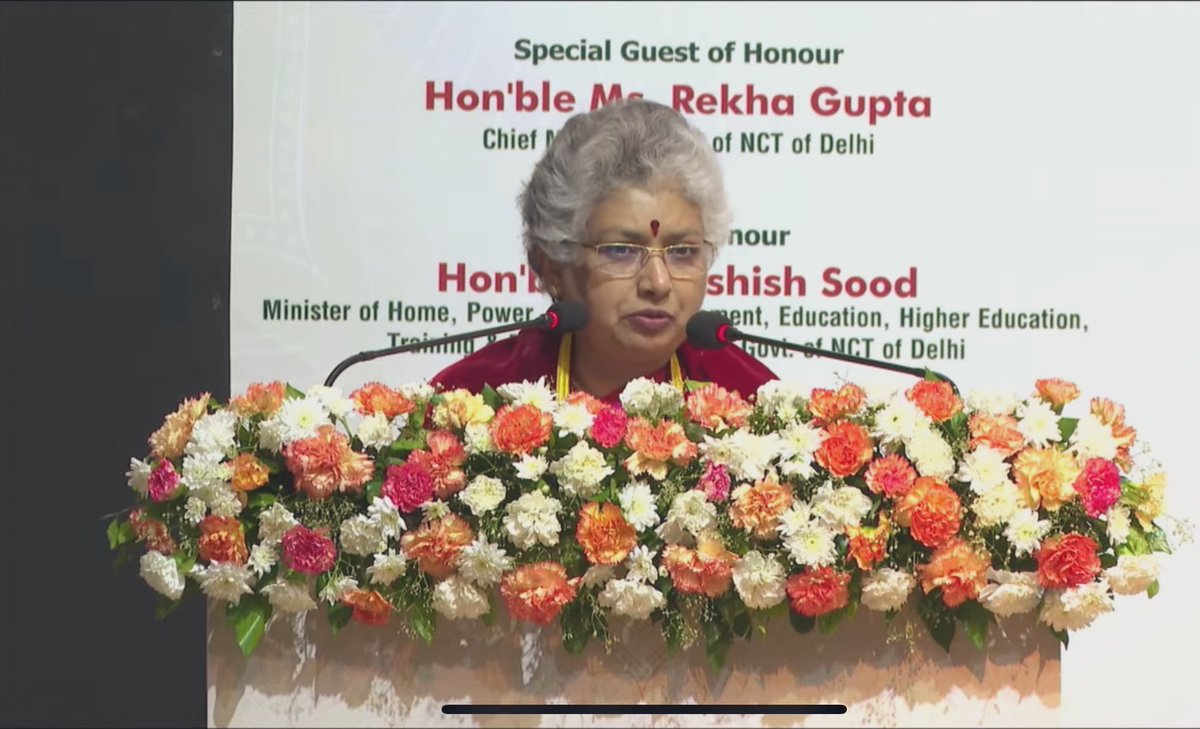
• • •
Missing some Tweet in this thread? You can try to
force a refresh


